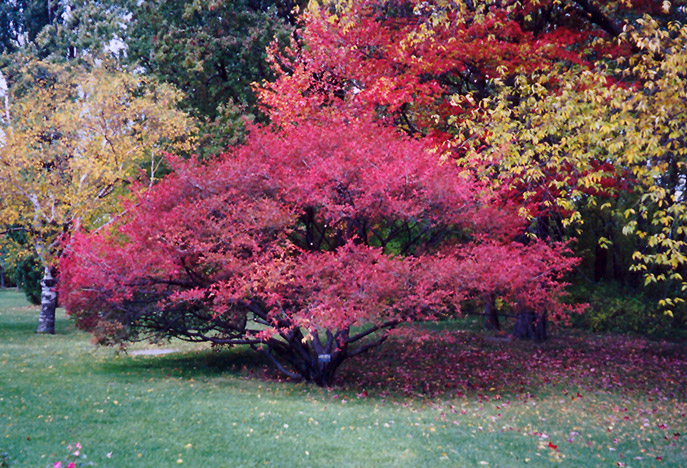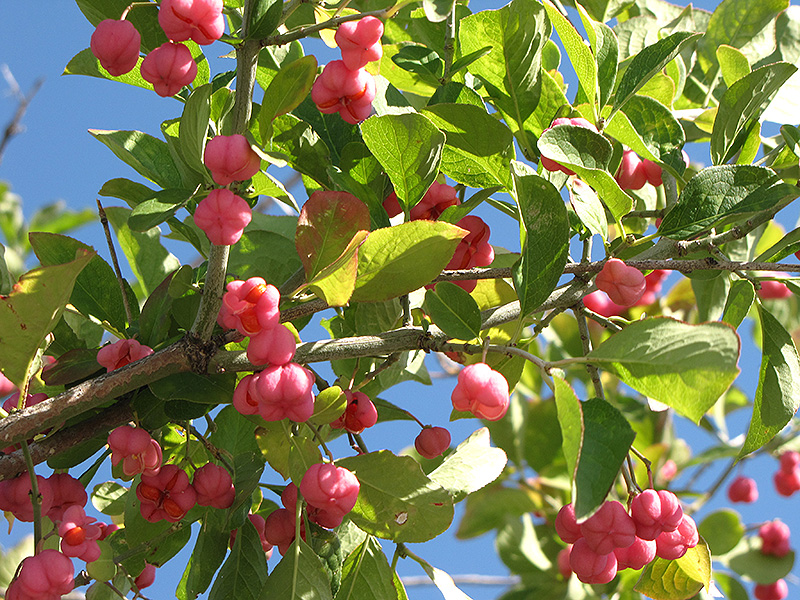Height: 20 feet
Spread: 15 feet
Sunlight:
![]()
![]()
Hardiness Zone: 3a
Other Names: European Euonymus
Description:
A beautiful small multistemmed tree which produces copious quantities of very showy orange and red seeds in fall, although inconsistent fall color; susceptible to scale insect troubles, keep a close watch
Ornamental Features
Spindle Tree has rich green deciduous foliage on a tree with an upright spreading habit of growth. The pointy leaves turn an outstanding brick red in the fall. It produces cherry red capsules from early to late fall.
Landscape Attributes
Spindle Tree is a multi-stemmed deciduous tree with an upright spreading habit of growth. Its average texture blends into the landscape, but can be balanced by one or two finer or coarser trees or shrubs for an effective composition.
This tree will require occasional maintenance and upkeep, and is best pruned in late winter once the threat of extreme cold has passed. Gardeners should be aware of the following characteristic(s) that may warrant special consideration;
- Insects
Spindle Tree is recommended for the following landscape applications;
- Accent
- Mass Planting
- Hedges/Screening
Planting & Growing
Spindle Tree will grow to be about 20 feet tall at maturity, with a spread of 15 feet. It has a low canopy with a typical clearance of 3 feet from the ground, and is suitable for planting under power lines. It grows at a medium rate, and under ideal conditions can be expected to live for 40 years or more.
This tree does best in full sun to partial shade. It is very adaptable to both dry and moist locations, and should do just fine under average home landscape conditions. It is not particular as to soil type or pH. It is highly tolerant of urban pollution and will even thrive in inner city environments. This species is not originally from North America.
A NetPS Plant Finder tool



